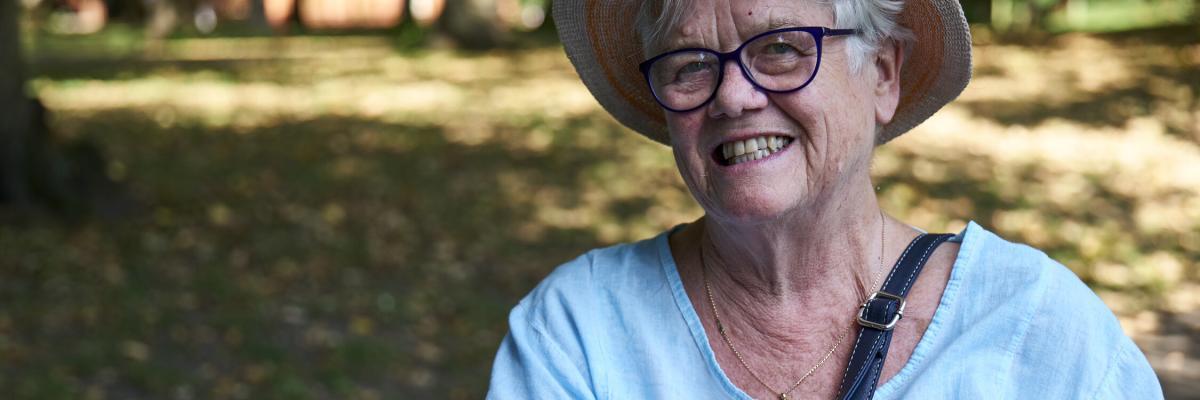A summary of the learning and recommendations from Iriss work that explored how we can make independent, inclusive living happen.
What is known about what works, or doesn’t, to support innovation for independent, inclusive living? How do we achieve a vision where ‘Everyone in Scotland will get the social care support they need to live their lives as they choose and to be active citizens’? (IRASC, 2021).
We've been exploring this very question through a series of public events and discussions. And there’s been some interesting findings.
Initially we undertook a rapid review of the published evidence on new models of care at home. This showed that the evidence of what works well is limited. Perspectives of supported people and support workers are not included. There is also a focus on an old model of support based around care at home, rather than support for independent, active living. So, the way research questions and research funding are framed could hinder innovation and encourage traditional approaches to social support.
Our planning group which has representation from supported people, unpaid carers, Scottish Care, the ALLIANCE, Carr Gomm and Gwynedd Health and Social Care, has informed the set-up of the events. It also highlighted the shortcomings of the old model – and in particular, the limiting nature of the language we use.
Below are the reflections and suggestions from the first event.
What are the key issues?
Use of language
The expert advisory group helped us understand that using terms such as ‘care at home’ was not enabling or inclusive. Kiana Kalantar-Hormozi, an activist, filmmaker and artist who spoke at our recent event says that ‘Social care and its associated terminology is based on a problematic, charity model rather than a right-based approach’. The language needs to change to reflect a rights-based approach.
A reliance on unpaid carers to meet support needs
People who need support for independent, inclusive living should be able to access professional support. Unpaid support is neither fair work nor is it sustainable. It is a right for supported people to have a private, independent life apart from family. There is also a risk of unseen abuse.
Lack of training and support for PAs and their employers
A way to ensure that PAs receive adequate support and supervision and specialist training as needed for their work, drawing on lived experience to design and deliver this There is also a need to better support people who employ PAs to manage issues or concerns.
Impacts on supported people
Issues such as the tension between real (usually more) and budgeted hours required to provide support, and recruitment and retention of PAs, particularly in rural areas, all have an impact on the supported person.
Investing in support is an investment in the society
Evidence from a 2019 Independent Living Fund (ILF) study in Northern Ireland found that every £1 spent on independent living resulted in over £10 in community outcomes.
What is needed for change?
A new language
We need to use a new language to talk about care and support that prioritises independence, inclusivity and human rights.
Meaningful involvement and co-production
Action on true co-production with people with lived experience of social care support is required. There needs to be willingness to listen, openness and space to be creative, which is true, and is not paying lip service. Also there needs to be more awareness of ableism in decision making processes and work to avoid it.
Investment in people
Employees should be paid a realistic wage, with proper terms and conditions, as well as training and education. Jobs need to be new or different if we are to prevent climate crisis and meltdown, and encourage people back into the sector (and stay).
Investment in personal assistants
Fair rates of pay for personal assistants (PAs) – taking their specialist skills into account and parity of pay levels across sectors and employers.
Better commissioning
A move away from time and task, with less focus on hours of support towards support for personal outcomes, is the ideal.
System change
A recognition that system change is required through budgets that reflect person-centred work and real outcomes for individuals. Policy makers need to know real problems across sectors. Legislation needs to support this and draw on what is already in place such as the Convention on Rights of People with Disabilities (CRPD) and build on human rights.
Build capacity
Free up staff to take forward change, and not see it as an add-on to the day-to-day work. Invest in and fund user-led organisations. Build a system where people with lived experience are involved in education/training, service redesign; and governance and decision-making.
Connectivity between children and adults services
There is a need for more connectivity and parity between how people are supported as children and then into adulthood through the relevant services.
Listen to Kiana Kalantar-Hormozi, activist, artist and film maker who shares her views from her own personal experiences of how we can move forward with independent living support, and how to get it right for everyone.
A transcript of the audio is also available.

